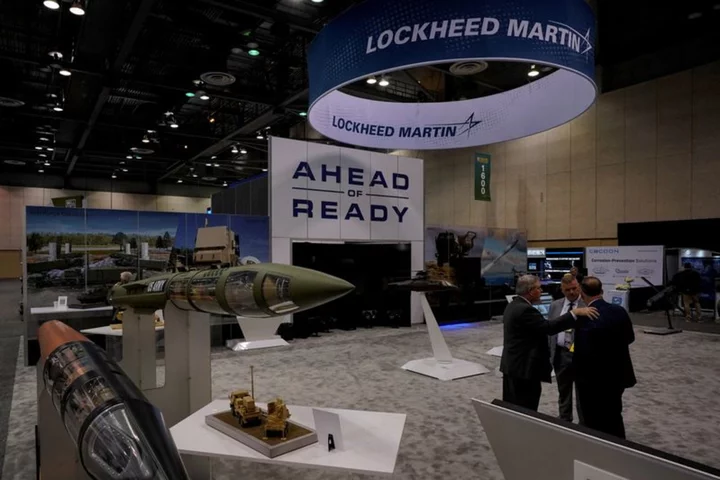By Valerie Insinna and Mike Stone
WASHINGTON (Reuters) -Lockheed Martin Corp has withdrawn from the U.S. Air Force's competition to build at least 75 refueling tankers, the company said, giving Boeing's KC-46 Pegasus a boost in the closely watched multi-billion dollar Air Force contract.
Airbus had teamed up with Lockheed in 2018 to offer its A330 multi-role tanker transport, but the French aerospace giant now must decide if it will pursue the competition without Lockheed.
"Airbus remains committed to providing the U.S. Air Force and our warfighters with the most modern and capable tanker on the market," an Airbus spokesperson said.
The Air Force has sought to replace hundreds of Eisenhower-era KC-135 tankers in three lots. The first tranche was awarded to the Boeing-made KC-46 Pegasus, which has been plagued by performance challenges, including defects with an on-board video system and with the boom that connects the tanker to aircraft seeking refueling.
"Lockheed Martin has decided not to respond to the U.S. Air Force's KC-135 fleet recapitalization Request for Information," Lockheed spokesperson Stephanie Stinn said in a statement.
A Lockheed-Airbus victory would have landed Airbus its first aircraft contract with the U.S. Air Force after attempting to penetrate the U.S. defense market for two decades.
The Air Force kicked off a competition in 2022 for its second tranche of 140 to 160 jets which would follow the Boeing contract to produce 179 KC-46 Pegasus planes. However, earlier this year Air Force officials said it could reduce the second tranche buy to around 75 tankers, a move that would hurt Lockheed's "business case" for its bid, executives have said.
Lockheed will shift the team and resources "to new opportunities and priority programs within Lockheed Martin, including development of aerial refueling solutions in support of the U.S. Air Force's Next-Generation Air-Refueling System (NGAS) initiative."
The third tranche, the NGAS or KC-Z tranche, is expected to be announced and competed in the 2030s.
The abrupt departure of the Lockheed bid, known as LMXT, surprised some Capitol Hill aides. Advocacy for the LMXT,which would be made in Alabama and Georgia, had been fierce with Lockheed spending political capital to assure that Boeing's plane was not a shoo-in to win the second tranche of the three-tranche tanker recapitalization.
In 2011, Boeing won the first of the three-phase procurement to replace the Air Force's aging tanker fleet, securing a contract for 179 KC-46s. The program has since incurred more than $7 billion in losses.
(Reporting by Valerie Insinna and Mike Stone in Washington; Editing by Chizu Nomiyama)









